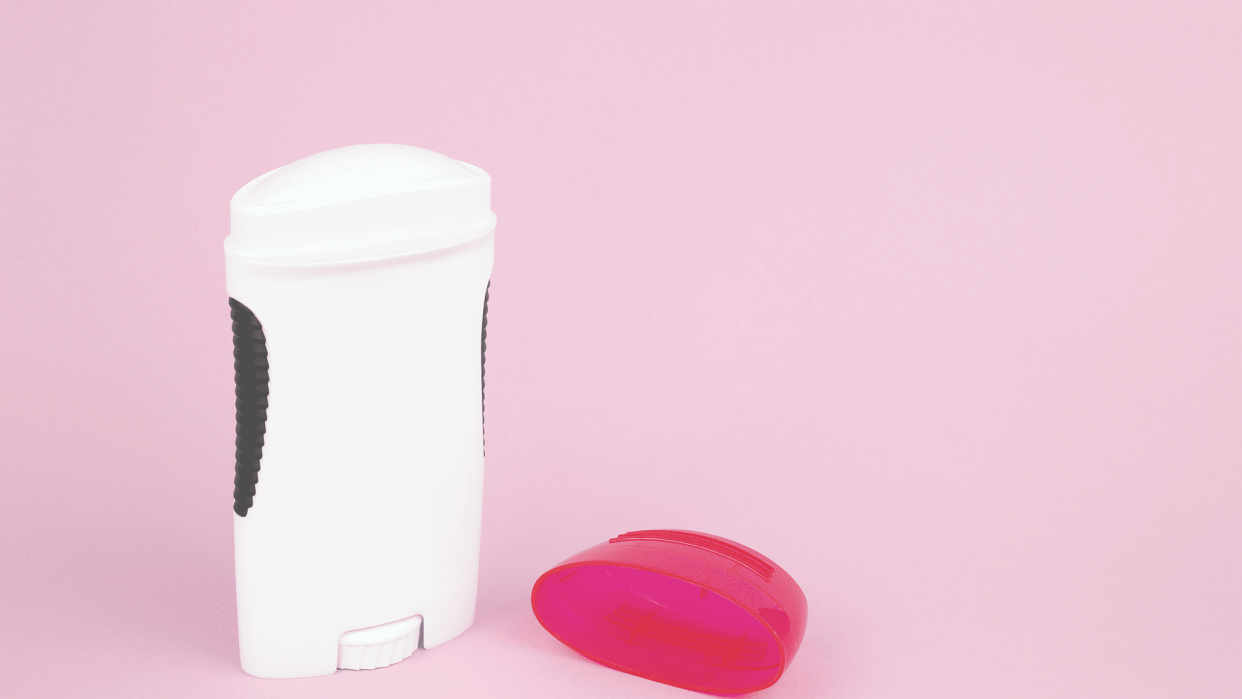Wait, Should You Be Applying Deodorant Before Bed?

Right around the time I hit puberty my mom took me to the drugstore and told me to pick out a deodorant "because it was time." Clearly, she was trying to avoid simply saying, "Kid, you stink."
Back then Mennen was courting young consumers with their Teen Spirit line of antiperspirant deodorant, packaged in pinks and purple while boasting names like Orchard Blossom. I was 10 and nothing seemed more grown-up than using something meant for teenagers. I was so naïve. It was like they were speaking directly to me.
Fast forward more than two decades later and, like most first-world citizens, I continue to swipe my deodorant on daily, albeit now with products that are a little more grown-up. So you can imagine my surprise when I came across The Verge's piece on how, as a society, we've been using antiperspirants wrong all of this time. How is that possible?
RELATED: The Difference Between Deodorant vs Antiperspirant
After reading the directions on his antiperspirant, author Chris Plante discovered we're supposed to apply the product at night before we go to bed in an effort to clog the sweat ducts under our arms. It's this specifically-timed use of antiperspirant that allows it to set up so that moisture can't escape the body.
But don't those ducts serve a certain purpose? If moisture can't escape the body at all, is that even healthy?
I immediately grabbed my stick of deodorant to check for similar instructions. Mine simply stated: "Apply to underarms only."
Curious for more information, I quizzed a couple of dermatologists on the subject, both of whom seem to disagree with the directive on Plante's antiperspirant.
"No, it's not necessary to use deodorant at nighttime," says Dr. Julia Tzu, founder and Medical Director of Wall Street Dermatology in New York. "Perspiration levels are not as high compared to daytime and usually the 'deodorizing' is most important during the daytime. While using it occasionally at bedtime is not harmful, use of deodorants around the clock may be an additional source of unnecessary irritation to the skin."
Dr. Alan M. Dattner of Holistic Dermatology, also in New York, agrees, citing the potentially harmful effects of deodorants that may contain aluminum.
"Deodorants usually refer to a combination of antiperspirant and odor reducer," he says. "Antiperspirants coagulate proteins in the sweat ducts, so there is no reason to apply this at night. In fact, they should be used as infrequently as possible. There are some health questions about applying aluminum, where it can get absorbed, on a daily basis."
RELATED: 5 Anti-Chafing Sticks and Healing Products
What Tzu does recommend, however, is avoiding the application of deodorant to sweaty skin (and you know we've all been guilty of throwing it on quickly post-workout at some point).
"One should clean the skin prior to application of deodorant to avoid cross-contamination of the deodorant itself," she says.
Simple soap and water should do the trick for getting your underarms ready for application, no need to get too aggressive with antibacterial wipes to prep the area. Tzu says topical antibiotics are mainly helpful with eliminating body odors when deodorants can't be used because of skin irritation.
Whew, now I can rest easy tonight, without applying deodorant before I slide into bed.

